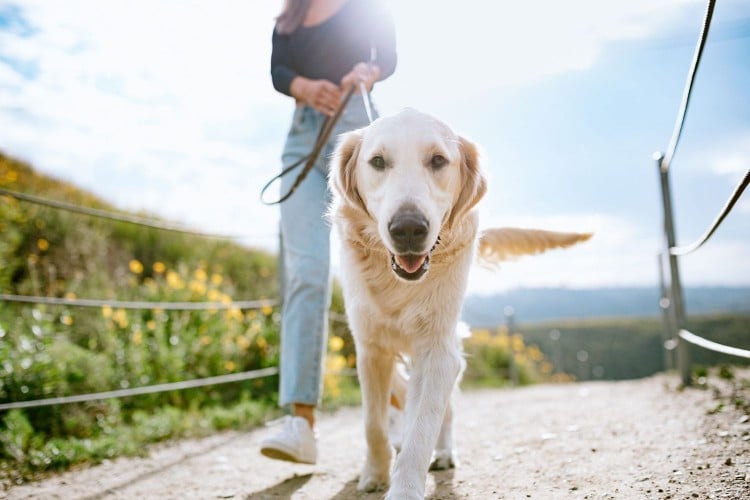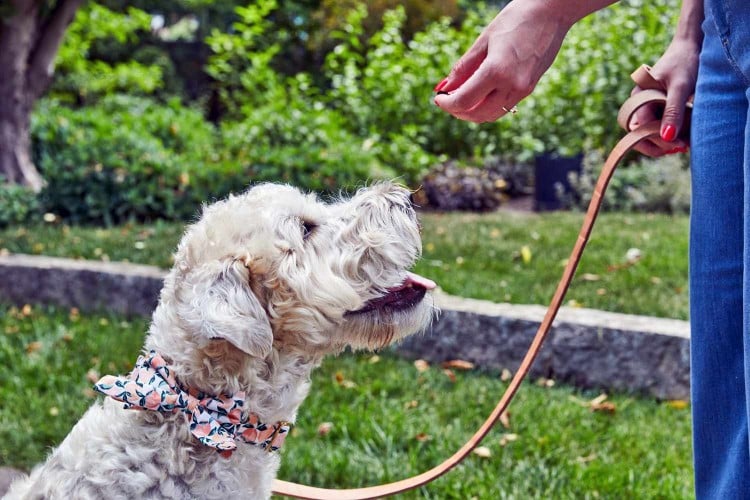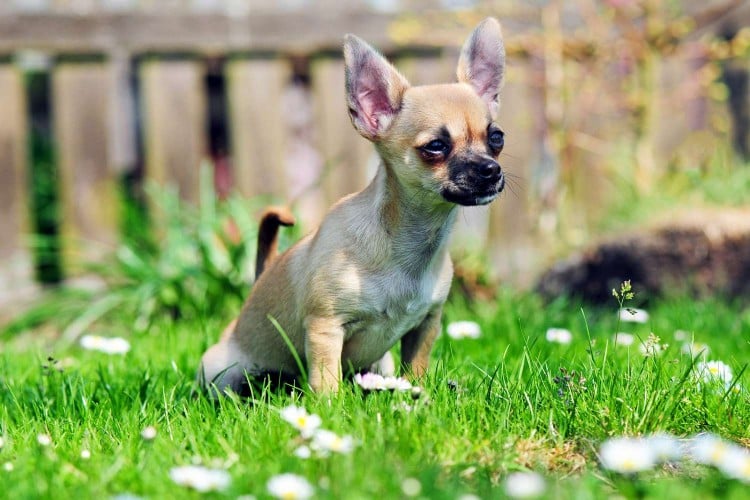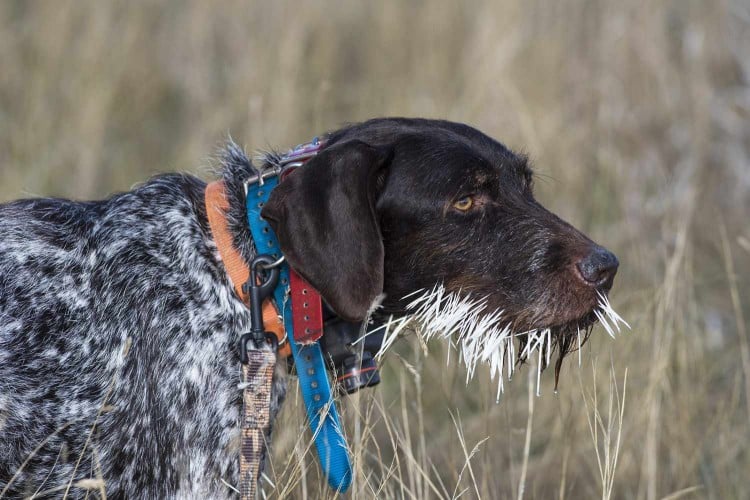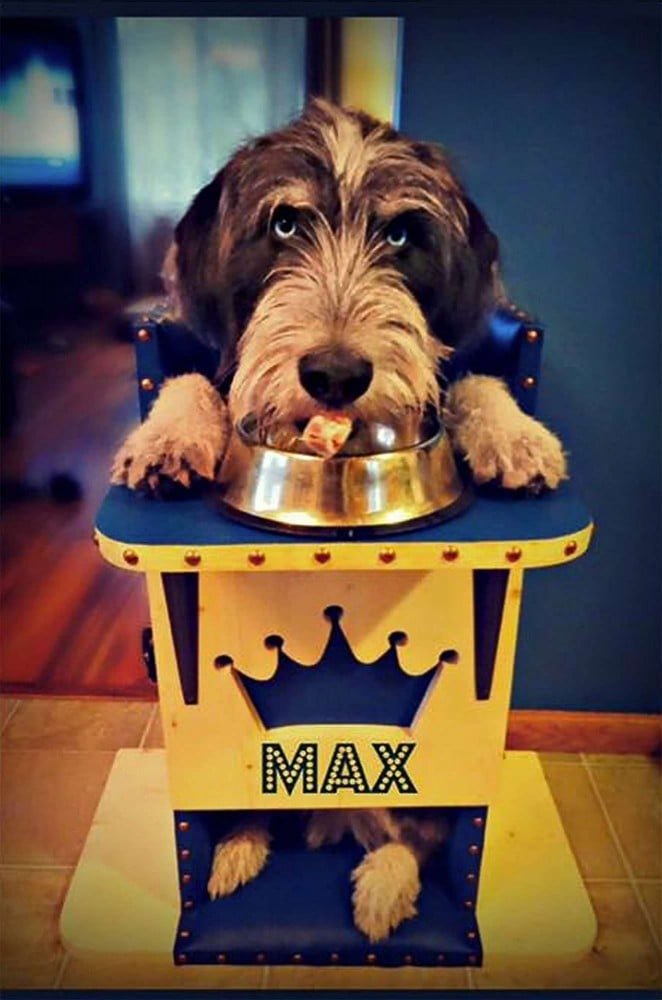Our dogs do all sorts of strange things … some are even quite dangerous. Live with an adolescent dog, or any breed that has pent up energy, and you will likely experience serious heart pounding as your dog tries to chase not-so-cuddly critters, jumps off unsecure pieces of furniture, or (of course) attempts to scarf down weird things that are not considered food. They certainly want to keep us on our toes!
Sometimes the things dogs consume (even when we don't want them to) are not cause for concern. And other times, well, they may require a trip to the emergency vet (you didn't want to save that stimulus check, did you?). If your dog is eating rocks, that happens to be one of those things that needs immediate attention. We examine four reasons why your dog might decide to sample them and what you can do about it.
What Does It Mean When Your Dog Eats Rocks?
Canines are connoisseurs of strange things to eat. Whether it's dirt, socks, undergarments, or yes, rocks, our dogs find ways to eat things that at best make us gag and at worst make us call the emergency vet. Puppies may bite, chew, and even swallow random objects accidentally when they are investigating their curious world. Adult dogs may find rocks an appetizing treat or interesting hobby for a variety of reasons—including they just like their taste and texture, boredom, behavioral issues and disorders, or an underlying medical concern.
4 Reasons Your Dog Eats Rocks
Chewing, licking, or even accidentally swallowing a rock doesn't always mean your dog has a serious problem, per se, but it can quickly become an emergency situation. Rocks can quickly do damage to a dog's body and when your dog is constantly trying to eat them, you need to seek immediate help from a veterinary professional. Here are four common reasons your dog might become a rock collector.
1. Your Dog Just Wants to Try Them Out
Like human toddlers, puppies love to try out new things with their mouth. A hand? Put their mouth on it. A squeaky toy? Lick it. Your new pair of jeans? Bite it. And for some pups, and adult dogs, too, a rock can be just one more thing to test out with their mouth. If this is the case for your dog, using positive reinforcement to teach them a "leave it" cue can be really helpful and extremely useful in many contexts. Avoid just grabbing something from your dog's mouth—-not only does this increase the chances of your dog resource guarding things in the future, it can also increase the chances of eating rocks becoming a fun game.
"It [rock eating] can be reinforced by inappropriate attention, like trying to grab and pull things from the dog's mouth instead of you just trading or redirecting," says Leslie Sinn, DVM, DACVB, CPDT-KA, veterinary behaviorist and owner of Behavior Solutions in Hamilton, Va.
To prevent resource guarding and accidentally reinforcing rock eating, teach your dog helpful cues like "give" and "drop." Then trade with your dog by offering them something else they might really want, like a treat or favorite tug toy. When they go for that thing instead, you then remove the rock from their line of sight and move your dog to a different area.
2. Your Dog is Bored
Boredom is a common culprit for myriad reasons our dogs do things. From chewing on furniture to ingesting odd things in your yard like dirt or plants, a dog that is not mentally and physically enriched will find ways to alleviate boredom. And if a dog is constantly bored, meaning his environment doesn't offer much mental stimulation, he may ingest things that pique his interest more than a dog that is simply bored at random times.
This can lead to a significant behavioral and health concern, as dogs that lack consistent opportunities to engage their brain will soon become frustrated and anxious and look for ways to soothe those feelings.
To prevent this, make sure you're providing your dog daily chances to use their canine smarts to investigate and learn. You can help prevent boredom in your home and yard by offering up new toys and puzzles, rotating old ones, and adding safe chew toy options. Take your dog for walks and hikes every day and let them sniff. Play games, offer up daily sessions that teach them new skills and tricks, and go out and discover the world together.
3. Your Dog Has a Behavioral Concern
When your dog is overly stressed or nervous, and conflicted with how to handle a situation, eating non-food items like rocks can act as a displacement behavior. These are behaviors that appear odd given the context and seem as though they would not do anything to help alleviate the negative feelings your dog is experiencing.
Some dogs may have a significant behavioral concern that leads to their desire to consume rocks. General anxiety and compulsive disorder (like OCD) can quickly become serious, causing a dog to engage in obsessive behaviors like spinning, tail chasing, licking, or even consuming lots of odd things like pebbles and rocks. If you think your dog could have severe anxiety or a compulsive disorder, seek help from a veterinary behaviorist.
4. Your Dog Has an Underlying Health Issue
It's not uncommon for dogs to consume odd things, even rocks, when they are feeling an upset stomach or having problems with digestion and are looking for relief. "In general, dogs eating non-food items is most often associated with gastrointestinal (GI) discomfort of some sort," Sinn says.
Eating things that are not considered food, like dirt or rocks, can also indicate that your dog's diet needs adjusting. When a dog's diet is lacking in the vital nutrients they need, they may seek those vitamins and minerals elsewhere. In severe cases, the nutritional deficiencies come from a serious medical issue like exocrine pancreatic insufficiency (EPI) or rickets. Pica, a condition where an animal constantly eats non-food items can result from other medical issues or anxiety and OCD.
These can all become serious conditions that need treatment. Signs your dog's rock eating is becoming a serious problem can include:
If your dog is suddenly obsessed with eating rocks or it is accompanied by other physical or behavioral symptoms like these, call your veterinarian right away. Once your vet has ruled out any health concerns, you can also consult a veterinary nutritionist to help create a diet most suitable for your dog.
What to Do if Your Dog Eats Rocks
If you just watched your dog swallow a rock, call your veterinarian immediately or better yet, go ahead and take them to the emergency vet. It is better to be safe than sorry and a vet can help you to determine next steps in the treatment process.
If your dog seems to constantly want to put their mouth on pebbles or rocks, it's critical that you rule out any major health or behavioral concerns. Consult with your veterinarian and a veterinary behaviorist. Then, practice good management by prevent access to rocks and keeping your dog on leash in areas where lots of rocks might be. This means your dog cannot be left unattended in your backyard or free to roam off-leash.
Make sure you always offer up lots of opportunities for positive reinforcement in outdoor situations where the tendency to sniff and chew on non-food things is most likely to occur. Play Frisbee, tug, and fetch. Practice basic skills outside and reinforce at a very high rate, using continuous reinforcement, so that your dog remains engaged and learns to associate being outside with chances for getting attention from you. Remain positive and never hesitate to schedule private lessons with a certified professional dog trainer well-versed in positive reinforcement.
